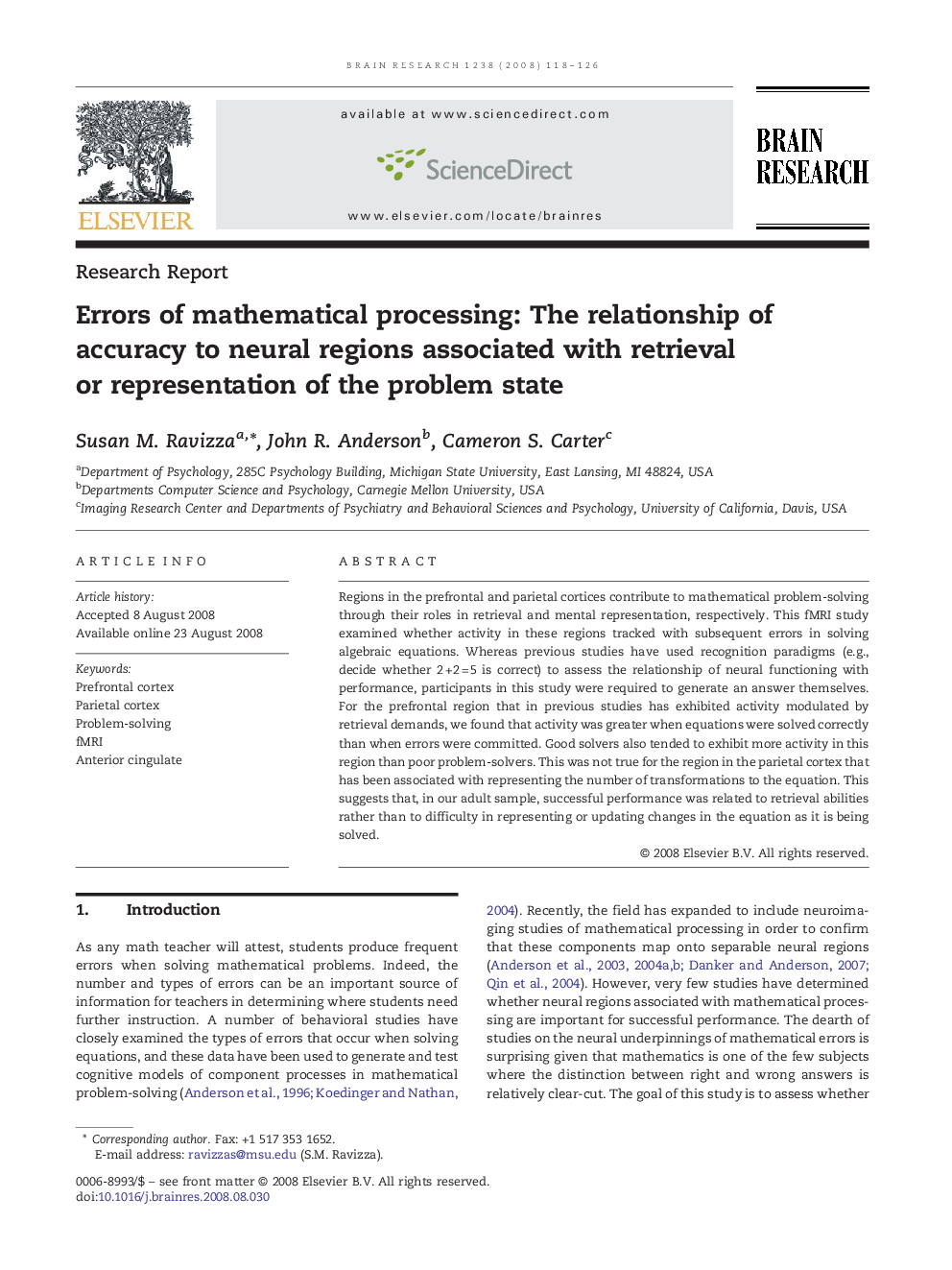| Article ID | Journal | Published Year | Pages | File Type |
|---|---|---|---|---|
| 4329207 | Brain Research | 2008 | 9 Pages |
Regions in the prefrontal and parietal cortices contribute to mathematical problem-solving through their roles in retrieval and mental representation, respectively. This fMRI study examined whether activity in these regions tracked with subsequent errors in solving algebraic equations. Whereas previous studies have used recognition paradigms (e.g., decide whether 2 + 2 = 5 is correct) to assess the relationship of neural functioning with performance, participants in this study were required to generate an answer themselves. For the prefrontal region that in previous studies has exhibited activity modulated by retrieval demands, we found that activity was greater when equations were solved correctly than when errors were committed. Good solvers also tended to exhibit more activity in this region than poor problem-solvers. This was not true for the region in the parietal cortex that has been associated with representing the number of transformations to the equation. This suggests that, in our adult sample, successful performance was related to retrieval abilities rather than to difficulty in representing or updating changes in the equation as it is being solved.
